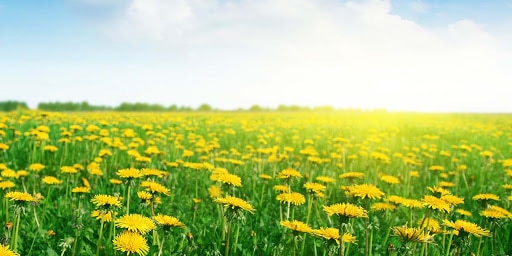TECHNOLOGY & EXPERTISE
Crop Science
American Biorubber has expertise in a wide gamut of guayule crop science technology derived from decades of experience
Agriculture
Our expertise enables you execute an agricultural program of your own
American BioRubber has well over two decades of experience in guayule crop science, molecular and traditional breeding, germ plasm selection, elite seed development, seed harvesting, seed cleaning, prep and storage methods, crop establishment, management, nutritional and irrigation programs, greenhouse processes, harvest techniques, equipment design and selection, and specialized transportation systems.
Our expertise enables you to gain a rapid understanding of the methodologies developed and know-how created to quickly plan and execute an agricultural program of your own. In addition to our scientific and technical portfolio, American BioRubber is well positioned to developed detailed financial models for crop programs ranging from small half-acre test plots to many tens of thousands of production acreage.
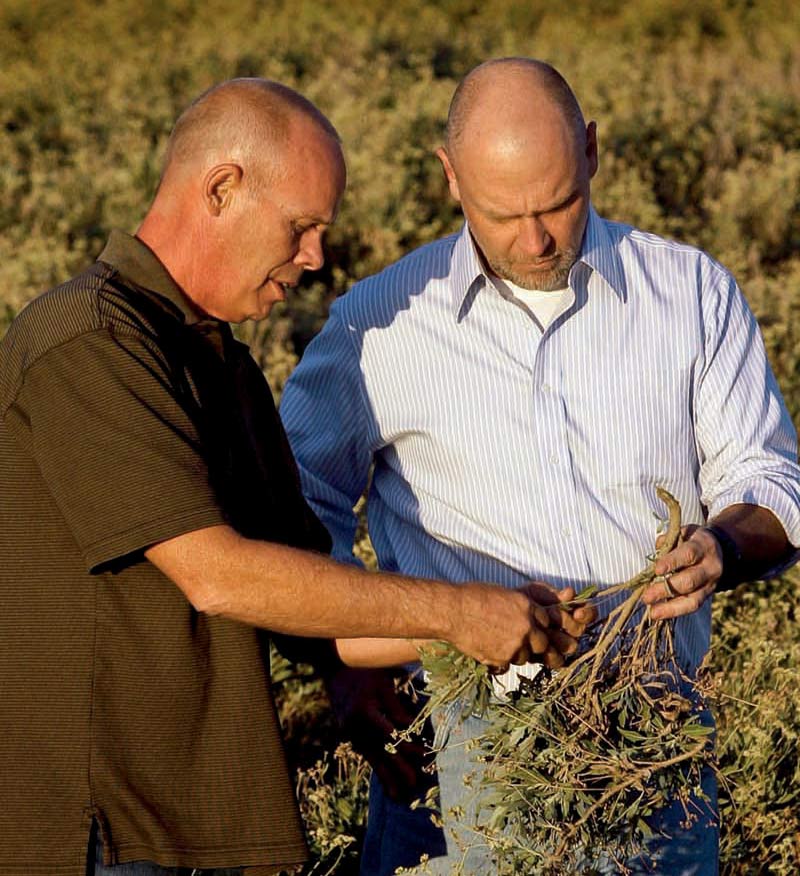
Seed
Having the right seed for your program is paramount
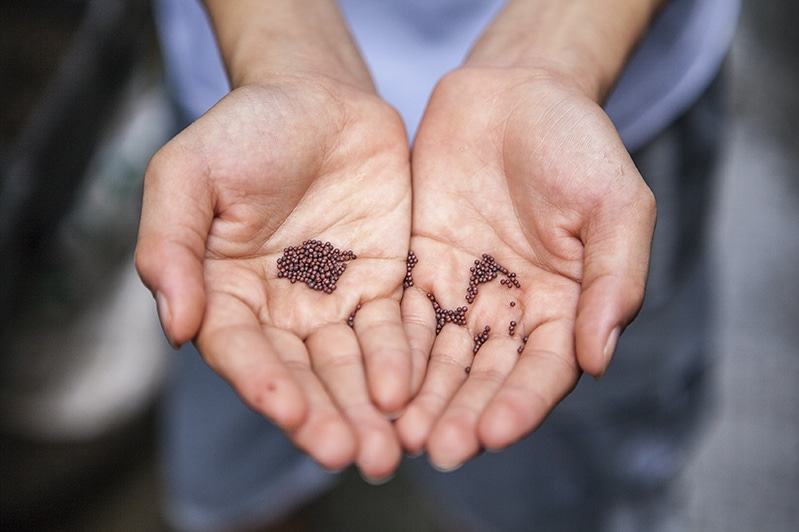
American BioRubber understands that not all seed is created equal which is why we have spent decades developing, breeding and selecting a variety of seed for different geographic locations, soil types and crop management practices. When starting in a new geographical region it is important to design and run a series of small test plots, then select the best of these outcomes for your scale up program.
American BioRubber offers a portfolio of Elite Seed developed by our crop scientists in our molecular breeding programs. American BioRubber was the first company to apply advanced genetic marker identification, selection and breeding g programs to create a family of elite seed. Our programs established new methods and protocols in creating the best plants and seed in the industry.
In the past, guayule plants were breed using traditional breeding methods: see a plant you like and breed it with a trait you want from another plant. Unfortunately, guayule simply does not work that way; a fact that many breeders discovered after years and decades.
Nutrient and Irrigation Practices
Growing the best crop possible
Processing and producing the highest quality rubber, resin and fiber products first starts with growing the best crop possible, and that is a direct result of selecting and using the right nutrient systems for your soil types, climates and local cultural farming practices. Every soil type requires a unique nutrient blend and balance as does matching nutritional selection to the seed.
Proper nutrition requires effective irrigation methods and equipment: too much water can damage the crop while reducing irrigation quantities at certain times of the season will have a positive effect on rubber growth. American BioRubber has successfully grown tens of thousands of acres in a wide variety of geographic regions around the world, gaining tremendous experience and expertise in identifying best practices with surface drip, underground drip, sprinklers and flood irrigation systems – invest in the wrong system and your crop may simply not grow at desired rates, or worse yet, not produce rubber at all.
Crop Establishment
Moving from the greenhouse to the field
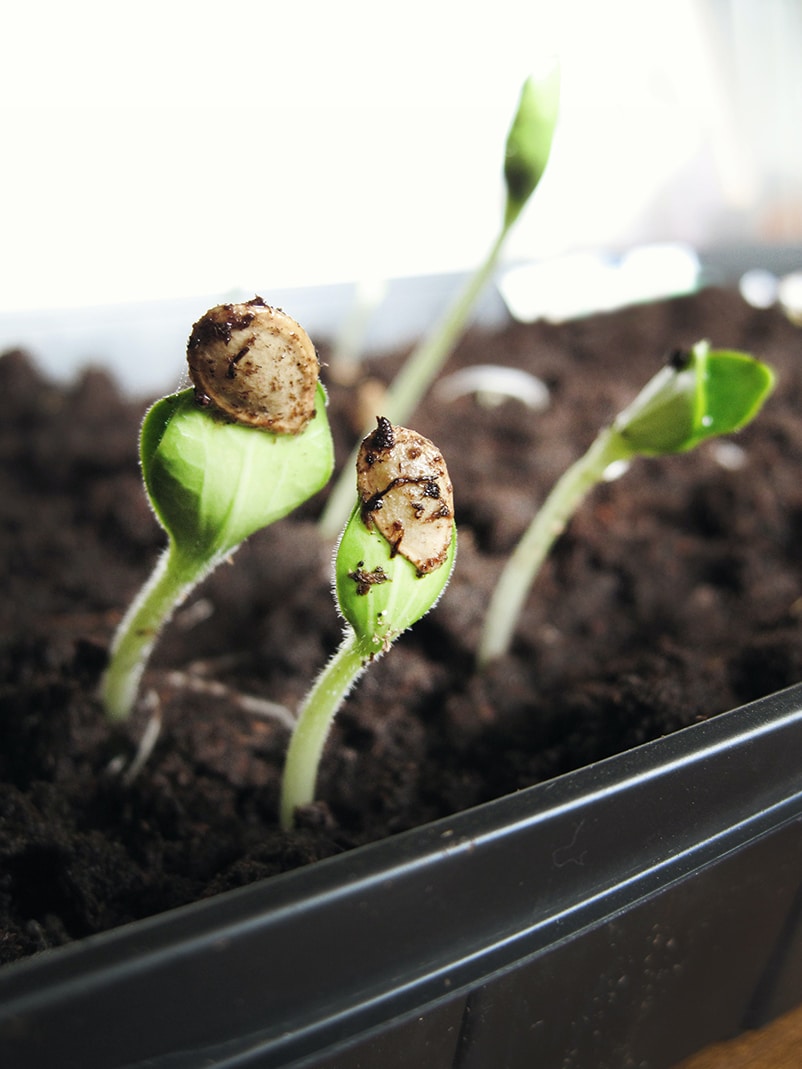
Having a hand full of seed is great if you know exactly what to do in each step along the way, ensuring fast germination, strength and vigor, rapid growth, and widespread health. What size tray is best for development of a strong tap root without binding and what soil type and nutrient mixture works best to avoid root-rot in the greenhouse? Once the transplants are mature, how long before they need to be planted in the field? How best to transport these delicate seedlings without damage? Knowing how to produce healthy greenhouse transplants is only one part of the process from seed to field. American BioRubber pioneered industrial scale guayule crops and we learned a lot along the way about the right things to do and even more about what not to do. Lessons learned are invaluable to any organization contemplating a guayule program.
Field prep, row design and spacing seem straightforward enough, after all how hard could it be? Is it better to install subsurface drip and 40” row spacing or utilize flood irrigation and 30” row spacing? Or perhaps seed broadcasting like Alfalfa would be better or is it based on geographical region? Do you replicate cotton or strawberry farming? It is best to speak with a company that is literally tried it all!
Whether you transplant (and have the equipment and trained personnel) or attempt 500 acres by direct seeding the decision is yours and knowing the options available isn’t the same as knowing why one maybe better in your geographic region than another.
Crop Management
After crop establishment has been completed either transplanting or direct seeding, ongoing care and maintenance is vital and no other company has the experience American BioRubber does.
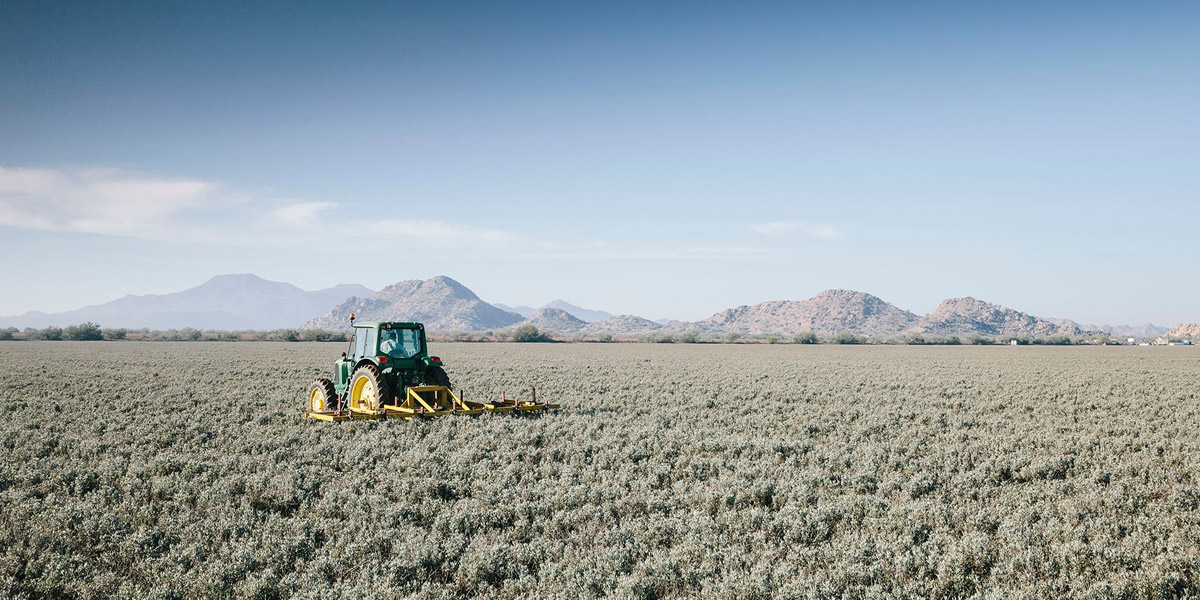
We consult with you to design the right program of practices, protocols and ongoing maintenance for your geographic region and to ensure your investment yields the highest volume of rubber and resin per acre. With over two decades of experience we have produced more biomass, more rubber and more resin than any other company in the world. Use our knowledge to your advantage.
Maintaining your investment is key to ensuring a healthy, high content crop. Deciding to hire your own team or to work with a field management company are just two of the options available to you, picking the best option is critical during the first few years of a guayule program. Matching nutrient applications and irrigation cycles to the land is as vital as weed and pest control practices.
Agricultural Laboratory
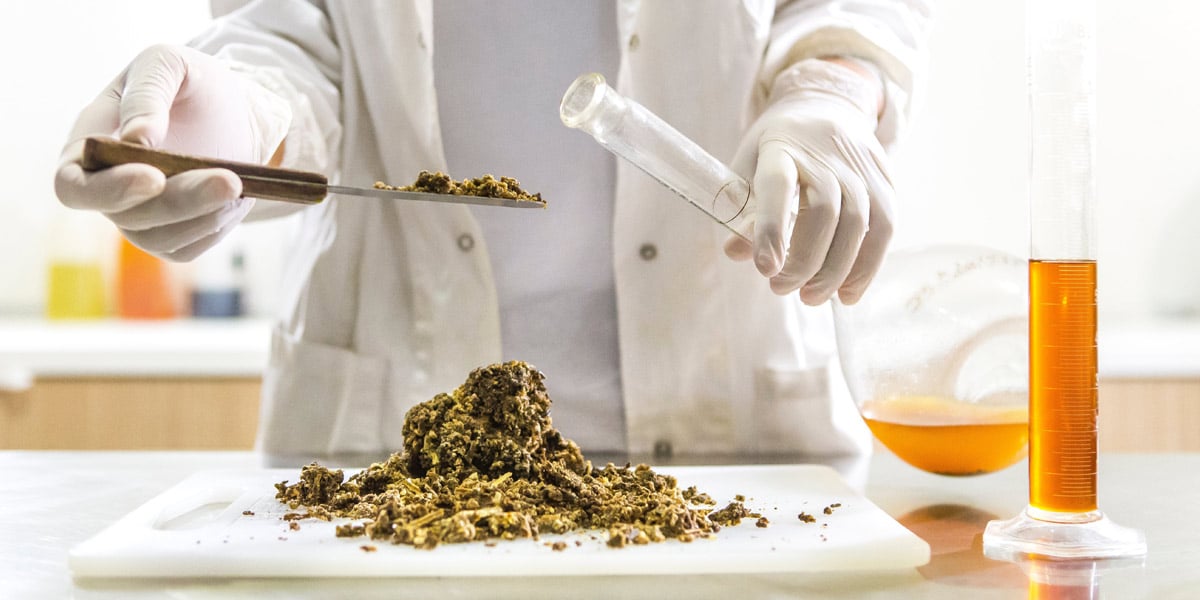
Having the best seed and crop in the ground is an excellent step in the right direction and part of the overall program. Thinking you have a healthy crop able to produce commercially viable quantities of rubber and resin and proving you do is vastly different. Having the best crop scientists and well-trained technicians is one step closer to understanding what grows in your fields. Combine this with a fully equipped laboratory, proper test protocols and standards, and you will now have the insight necessary to tackle tough and challenging issues and be able to resolve them.
Financial and Economic Modeling
Developing a robust plan with accurate financial modeling for a new crop requires expertise
It can very daunting to develop an effective, accurate and reasonable set of financial plans based on a new crop. While this may hold true for many government agencies, NGOs and private concerns, American BioRubber has the experience and financial expertise necessary to guide you through challenging and multi-optional crop cycles with a variety of functional harvest schedules, methods and removals.
Do you pollard this year’s crop? Is a destructive harvest best at the end of the year and will it regrow if the weather is too cold or too hot? How much rubber should I expect per acre if I harvest in August? How much should I pay for greenhouse transplants and is it more economical than direct seeding in sandy loam? Are there off the shelf harvesting machines available or do I need to plan for in house design and construction? Will frost affect transplants if it remains cold for longer than one week? These and many more questions (some you have not even thought of yet) can make developing financial models very tough and even tougher to manage.
Intellectual property licensing
Sometimes the best plan is to develop and pioneer key scientific or technological elements in-house so you can control the process or advance ideas you have been working on already. Other times it is best to acquire proven tactics and practices by licensing. Either way American BioRubber can assist you. We offer a wide portfolio of patents, know-how and trade secrets that have been well established, or we can guide you as project managers, taking your ideas to completion faster. Picking a team that has already been there, done that is a smart decision.

Additional Areas of Expertise
